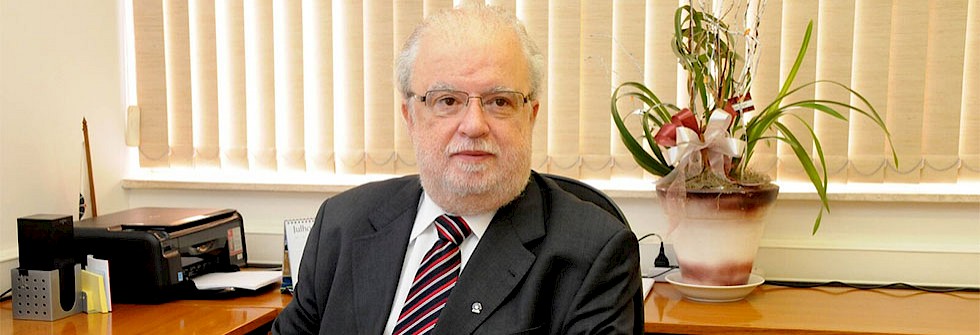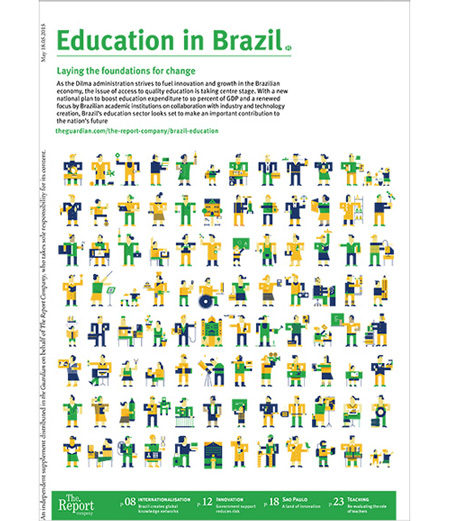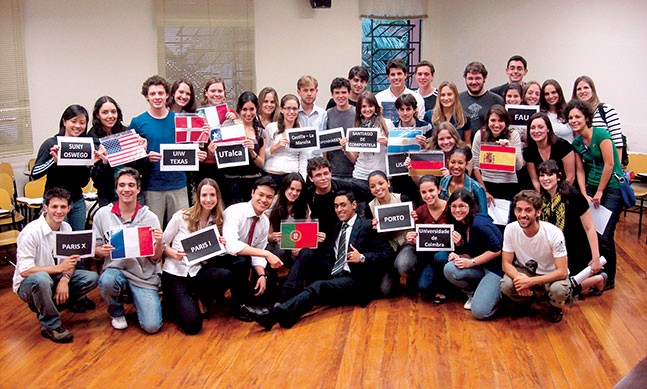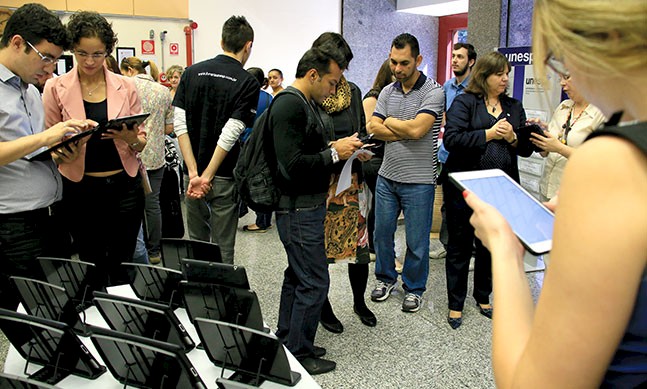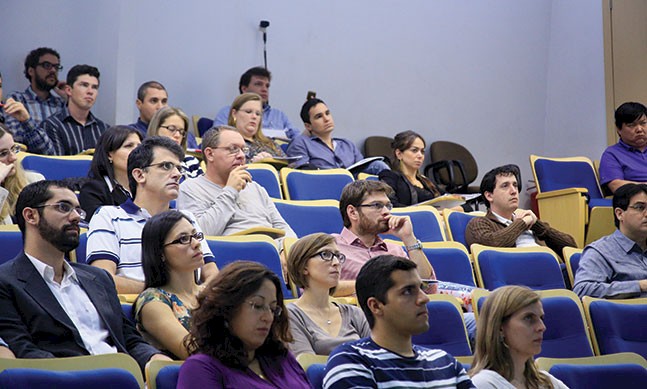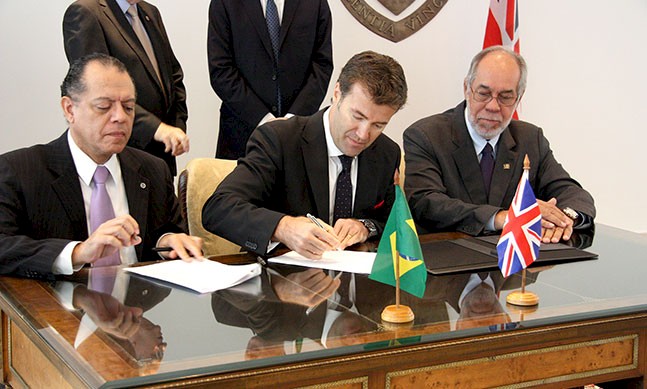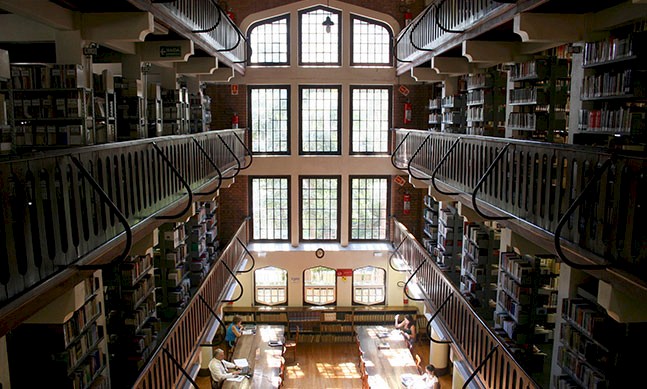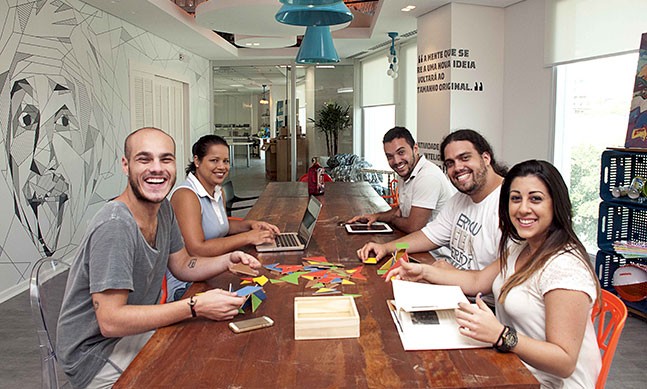The University of Campinas, Unicamp, is one of the best-regarded educational institutions in Brazil and is responsible for 15 percent of the country’s academic research across three campuses. In 2013, Jose Tadeu Jorge began his second term as head of the university, chosen by state governor Geraldo Alckmin to be the first man to return to the role having already been in charge from 2005-2009. With the highest-scoring graduate programme in the country, Unicamp is also responsible for more patents than any other in Brazil, and is expanding its reach overseas to capture and interact with fellow research institutions and professors.
The Report Company: There is a clear continuum between Unicamp and the city of Campinas. What do you see as the city’s role within Brazil?
Jose Tadeu Jorge: Campinas has very specific resources and conditions that cannot be found anywhere else in Brazil. First is its tradition in science and in training high-profile graduates, all thanks to the model that the university has followed since day one. By practicing science, we are at the forefront of thinking and knowledge, and that is something that is passed on to our students who are in turn encouraged to always seek out the new.
Our mission also includes something I like to call ‘society relations’ – taking our knowledge and creativity to society, and better understanding its demands, so we can guide our research accordingly. This way, our students understand the reality of their profession even before they enter the job market. Through these elements, the university is able to go beyond its role of simply training the country’s future workers, and can engage directly in the development of the city, which has been extensive since Unicamp was built.
TRC: Does an economy develop around a centre of excellence, or vice-versa?
JTJ: Currently, it is a mixture of the two. The university signs partnerships with the production sector to fill gaps, but researchers might also see something in a specific area that there is no current demand for, but that there could be interest in in the future. There are long-lasting partnerships that have developed throughout time, of which Petrobras is the strongest example. We have had a centre dedicated to oil research since the end of the 1980s, built and financed by Petrobras.
The state has one very important institution: Fapesp, the Sao Paulo Research Foundation. Fapesp is funded by one percent of ICMS, the state tax on products and services. This is written into the constitution to help finance scientific and technological development. This is where ideas play a role. Our lab scientists conceive paths for development which may or may not have a use in the future, and Fapesp funds are applied for by our researchers.
TRC: What will the city's vocation be in ten years’ time?
JTJ: Campinas has several other institutions also focused on research. There is the 130-year-old Agronomic Institute of Campinas, the Institute of Biology, and the Institute of Food Technology (ITAL), where our food engineering course was conceived. There is also the Centre for Research and Development in Telecommunications (CPqD), the Brazilian Synchrotron Light Laboratory; the Brazilian Bioethanol Science and Technology Lab and the computer science centre of EMBRAPA, the Brazilian Agricultural Research Agency, is found within our campus. There is a huge array of institutions that are able to handle continuous training and research in all areas.
But logistics play a part in Campinas’ development. We have the largest cargo airport in Brazil, Viracopos, which, within 10 or 15 years, could potentially become the largest passenger airport. The current renovation includes everything necessary to make Campinas a key centre for the transportation of cargo and people, further helped by the fact that the city is at a confluence of roads, which makes access very easy.
“The university is able to go beyond its role of simply training the country’s future workers, and can engage directly in the development of the city.”Tweet This
TRC: The secretary of the state government of Sao Paulo, Saulo de Castro, said there would be more investments in railroads, and that, therefore, São Paulo and Campinas would become even closer. What is your take on this?
JTJ: There is a project for the construction of a regional line, and another for a high-speed train connecting Viracopos, Campinas, Sao Paulo, Cumbica and Rio de Janeiro. This will not happen within 10 years, but it is also very important. The production sector needs functional infrastructure and trained professionals, and there is nowhere better positioned in Brazil than Campinas.
TRC: What were the high points of your first administration, from 2005-2009?
JTJ: It is clear that if the first administration had not been well-received, I would not have been re-elected. It was the first re-election in the history of the rector’s office.
Unicamp's model has stayed the same for almost 50 years, during which time deans may have had different ideological perspectives and slightly different takes on the model, but the core was never changed. From the perspective of the university community, understanding the model and working to further it is preferable, and that is exactly what I did in my first administration.
First of all, we tried responding more closely to society. In Brazil, the best universities are public ones, which makes it even harder for underprivileged students to access higher education. We created a social inclusion program based on public schools with an ethnic component, the Affirmative Action and Social Inclusion Programme. It gives out a ‘bonus’ at the vestibular (the main examination for university entrance) for those who studied in public schools and/or declared themselves to be indigenous or black. The number of youths coming from public schools and students that declared themselves as indigenous or black increased significantly. This helped stimulate motivation inside the university, because these students seized that opportunity as maybe the only chance they would have in their lives. The dedication in the university increased considerably, which led to a more participatory atmosphere.
Another important factor was the greater incentive provided to our innovation agency. Unicamp is the biggest patent holder in Brazil, with Petrobras in second place. This is a matter of great pride for us and it helps a lot with our marketing, but it is wrong. Universities are not supposed to hold patents. This is a distortion that needs to be fixed, and that will only happen through partnerships between the private sector and the universities, which is why the innovation agency has such an important role.
TRC: How important is internationalisation for Unicamp?
JTJ: It makes sense with our goals. You can only effectively work with new knowledge if you are paying attention to what is happening around the world. Any university that wants to be at the forefront of knowledge must be present the world over. We encourage our researchers, professors and students to seek partnerships throughout the world, and grad students are always pushed to conduct part of their research in other countries.
TRC: How would you appraise the government's Science without Borders programme?
JTJ: It is a positive endeavour, but one that still needs improved management. The programme is focused on students, who deal directly with the federal government in order to study overseas, rather than sitting down with their course coordinators. Thus the student isn’t always fully aware of the ramifications of the move for their career, such as which country would be the best to head for in their chosen industry. It is an issue that’s easily corrected, and the idea of sending students abroad is a great one, but the system needs to be optimised.
“We encourage our researchers, professors and students to seek partnerships throughout the world.”Tweet This
TRC: Unicamp also looks to bring in foreign professors. What challenges have you faced with this policy?
JTJ: The idea is to attract professors on a temporary basis for them to consider a permanent stay, if everything works out. We do not have the liberty of hiring professors just because we think they are good. We need to carry out civil service examinations, so the professors would come, stay for two years and then consider a permanent stay afterwards, at which point we start the examination process. Around half the professors that came have decided to stay, and for a nascent programme, I consider this a reasonable number. Hopefully that rate can go up if the program is improved, because these professors generate new motion and bring new ideas. Sometimes those ideas clash, but I still believe that the effort is worth it. When results are positive, they are very positive.
We also greatly encourage our professors to go abroad. There is an exchange program for professors; ours stay six months at a foreign university, and foreign professors stay six months at ours. Our success rate here is very high, generating collaborative, joint research projects, student exchanges and so on. We are starting something new with the Technical University of Madrid to exchange offices, too. This will act as an entry point for us into Europe and for them into South America, and having something akin to an ambassador in Spain will be a great facilitator. The idea eventually is to do something similar in the United States, China and other countries willing to create such an agreement. This is a very simple and low-cost strategy that could produce great results for our internationalisation strategy.
TRC: What makes Unicamp, and Campinas, attractive?
JTJ: If the location for the headquarters of a large company was down to me, I would consider where I could find the best professionals and city infrastructure. I consider these to be the most decisive factors, and Campinas is unarguably a place where one can find both of them.
I believe Unicamp is the best university in Brazil. When I say that people at USP frown, but I am not the one saying it. CAPES's evaluation shows that Unicamp has the best average evaluation. Unicamp has the highest percentage of courses rated six or seven. Therefore, the agency responsible for evaluating graduate courses in Brazil is saying that Unicamp has the best graduate programme in the country.
If you take all articles published in indexed journals by Brazilian professors and divide that by the number of professors, Unicamp is ahead of USP. In absolute numbers, however, USP is three times our size. We come top in patents and the licensing of patents. To sum up, in terms of the quality of graduate courses, of publications per capita and of the benefit to society, Unicamp is the best. The numbers say that, so it is not debatable. Brazil does not have a system to evaluate undergraduate courses, but our vestibular is more popular than USP's. This indicates that students think it is better here.
We are not the largest university in Brazil, but we are the best.


